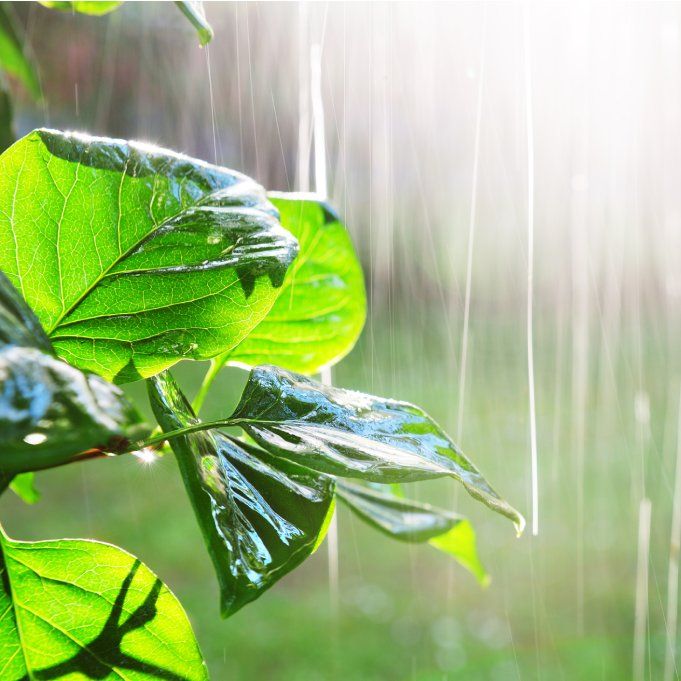[ad_1]
Many plants are suitable for full-sun rain garden design, including plants for the base, where it is deepest, and out to the edges, where it is driest. Rain garden plants like native perennials are best for their long root systems and appeal to wildlife. Here are a variety of choices with varying bloom times.
Choosing the right plants for a full-sun rain garden will ensure a low-maintenance habitat. Native plants are ideal, but you also can incorporate non-natives as long since they are not invasive and are pest-free.
Rain gardens are an environmentally friendly solution to preventing pollutants from entering our waterways. Storm runoff from roofs, driveways, and other hard surfaces is directed into the rain garden where plants and soil help filter contaminants from the water before it reaches the storm drains.
How To Plant A Rain Garden In Full Sun
Once your rain garden site is ready it is time for the fun part – selecting plants that are functional as well as pleasing to the eye. Choose perennial native plants or introduced ornamentals that are not invasive. Look up the hardiness zone for your location if you don’t know it, because it will determine if a certain plant can withstand an average winter in your city.
Before planting a rain garden, consider design tips that will make your garden more attractive. Situating the plants in groups of three or more gives the area a more landscaped appearance, and repeating the color scheme gives it rhythm and balance. If the area is large, you can add a small tree or shrubs.
Also take note of the amount of water the plants prefer. Those that tolerate “wet feet” can be sited in the base of the rain garden, and those that require less water can be planted toward the edges of the rain garden. By choosing rain garden plants that flower at different times of the year, the habitat is always interesting and will feed pollinators for a long period.
Make the planting holes twice as wide as each plant container and deep enough to allow the plant to sit at the same depth as it was in the container. Mulch well and water regularly till the plants are established. After that, your carefree garden should not need watering unless the area experiences an extensive drought. Do purge weeds as you see them.
Plants For A Full Sun Rain Garden
Here are favorite rain garden full sun plants, their USDA hardiness zones, and their bloom times.
Trees and Shrubs for a Full Sun Rain Garden
- Black Chokeberry (Aronia melanocarpa) USDA zones 3-8, blooms in spring.
- Beautyberry (Callicarpa americana) USDA zones 6-10, blooms in summer.
- Buttonbush (Cephalanthus occidentalis) USDA zones 3-9, blooms summer to fall.
- Kousa dogwood (Cornus kousa), USDA zones 5-8, blooms in summer.
- Panicle Hydrangea (Hydrangea paniculata) USDA zones 3-7, blooms in summer.
- Ninebark (Physocarpus opulifolius) USDA zones 3-7, blooms in spring.
- Elderberry (Sambucus canadensis) USDA zones 4-8, blooms in summer.
Perennials for a Full Sun Rain Garden
- Swamp Milkweed (Asclepias incarnata) USDA zones 3-9, blooms in summer.
- Butterfly weed (Asclepias tuberosa) USDA zones 4-9, blooms in summer.
- Blue False Indigo (Baptisia australis) USDA zones 3-9, blooms in spring.
- Brown fox sedge (Carex vulpinoidea) USDA zones 3-7, blooms early summer.
- Tickseed (Coreopsis verticillata) USDA zones 3-9, blooms in summer.
- Coneflower (Echinacea purpurea) USDA zones 4-9, blooms in summer.
- Joe Pye Weed (Eutrochium purpureum) USDA Hardiness 3-8, blooms in summer.
- Common boneset (Eupatorium perfoliatum) USDA zones 2-10, blooms in summer.
- Sneezeweed (Helenium autumnale) USDA zones 3-8, blooms late summer.
- Rose mallow (Hibiscus moscheutos) USDA zones 5-9, blooms in summer.
- Siberian Iris (Iris siberica) USDA zones 3-8, blooms in spring.
- Gayfeather (Liatris spp.) USDA zones 3-8, blooms in summer.
- Bee Balm (Monarda didyma) USDA zones 4-9, blooms in summer.
- Switchgrass (Panicum virgatum) USDA zones 2-9, blooms fall.
- Virginia Mountain Mint (Pycnanthemum virginatum) USDA zones 3-7, blooms in summer.
- Black-eyed Susan (Rudbeckia spp.) USDA zones 3-7, blooms in summer.
- Little Bluestem (Schizachyrium scoparium) USDA zones 3-8, blooms late summer.
- Goldenrod (Solidago spp.) USDA zones 2-8, blooms late summer to fall.
- Smooth Aster (Symphyotrichum laevis) USDA zones 4-8, blooms in fall.
- New England Aster (Symphyotrichum novae-angliae) USDA zones 4-8, blooms in fall.
- New York Ironweed (Vernonia noveboracensis) USDA zones 5-8, blooms late summer.
Groundcover for a Full Sun Rain Garden
- Leadwort (Ceratostigma plumbaginoides) USDA zones 5-9, blooms late summer.
- Moss Phlox (Phlox subulata) USDA zones 3-9, blooms in spring.
[ad_2]

